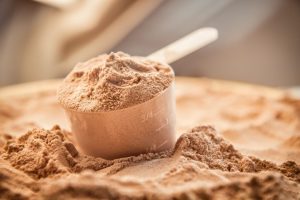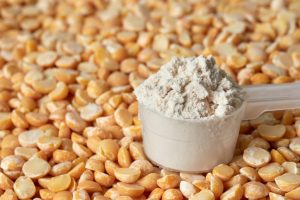More and more research is being released on the benefits of protein consumption. While it’s long been known that protein is essential for muscle growth and repair, only in recent years has it become popularized for its abundance of other health benefits.

Yet, some controversy exists over the idea of protein supplementation and its function in helping achieve adequate amounts of protein. While some view protein supplementation as an inferior and all-but-ineffective sales gimmick, other experts view protein supplementation as an effective alternative for consumption.
In what follows, we’ll be discussing protein as a macronutrient, its primary functions, and its many potential health benefits. Further, we’ll discuss protein supplementation and detail the advantages of protein powder and its many variations. Lastly, we’ll explore how dietary protein smoothies and shakes can aid as a healthy alternative in many dietary regimens.
Protein 101
Protein is one of three macronutrients essential to the function and survival of the human body, and more specifically, the bones, muscles, skin, and blood. This key macronutrient is often referred to as being the building block of life.
Protein is composed of chemical compounds known as amino acids, and it is broken down and absorbed efficiently during the normal digestive process. The end result of this digestive process boosts the immune system, improves cellular health, builds lean muscle tissue, improves athletic performance, and provides energy.
Studies of protein have identified that when consumed in optimal amounts, it may aid in reducing risk factors for osteoporosis, heart disease, and other major health complications.
While protein can and should be consumed primarily through whole foods, sometimes supplementation may be necessary, especially for athletes or extremely active individuals whose protein requirements are greater than that of less active individuals.
Potential Health Benefits of Protein Powder
When the body isn’t provided with adequate amounts of protein on a daily basis, optimal functioning of the human body diminishes. Thus, for all individuals, striving for optimal protein consumption is essential. For those who have difficulty consuming sufficient amounts of whole foods, protein supplementation is necessary to reach adequate levels.
The following are some of the most commonly reported and researched health benefits of protein and protein powder supplementation.
Weight Loss
While protein is often thought of as an alternative fuel source to carbohydrates and fats, it also acts as an effective appetite suppressant, increasing satiety and reducing food cravings for longer periods of time. Thus, protein aids in weight loss by influencing the number of calories consumed throughout each day, and it also boosts metabolism.
Muscle Growth

Combined with consistent resistance training, protein powder supplementation also aids primarily in lean muscle growth via a process known as muscle protein synthesis. Through muscular repair and recovery, protein also allows for maximal effort and athletic performance, reducing the risk of injury, and allowing for consistent and intense efforts during the resistance training regimen.
Energy Production
As suggested in a study published in the Journal of Sports Medicine and Physical Fitness, protein supplementation resulted in less fatigue during exercise compared to those who didn’t supplement with protein. Thus, those who consumed protein shakes experienced greater energy and output.
Immunity
Research also suggests that consuming adequate amounts of protein, whether through whole food or powdered supplementation, boosts immunity and provides a means of both illness prevention and management.
Skin Care
Finally, protein powder supplementation acts as a natural moisturizer for dry skin and an alternative solution for acne-prone skin and other skin imperfections.
Common Types of Protein Powder
According to the FDA, dietary supplements are those products that provide nutrients external to a whole foods diet, including vitamins, minerals, amino acids, herbs, probiotics, prebiotics, and other beneficial enzymes.
By definition, protein powder is a dietary supplement that provides the body with essential amino acids, vitamins, and minerals, allowing optimal recovery, repair, and function of the body.
The most commonly consumed protein powders are those derived from animal-based sources. These sources include whey protein, casein, and collagen, found in dairy products such as milk and cheese and animal tissue. Other animal-based protein powders include beef protein powder, egg-white protein powder, and other grass-fed powders.
In addition to the more popular animal-based powders, protein powder can also be derived from plants. Some common types of plant-based protein powders include soy protein and pea protein. These plant-based proteins tend to be less expensive and contain less protein, overall calories, and fats than that of animal-based protein powders.
Pea protein powder, unlike other plant-based protein powders, is a complete protein source that contains all nine essential amino acids. Both digestible and good tasting, pea protein is the superior option for those looking for an alternative to animal-based products. In addition, it produces similar recovery and repair benefits to whey protein and has been highlighted in research to help prevent chronic health conditions such as diabetes and heart disease.

Final Thoughts
Whether the goal is weight loss, muscle gain, or improving overall health, high protein diets have proven integral to achieving this goal. Though a whole foods diet is the optimal path, protein powder shakes are an effective and convenient alternative source of protein.
